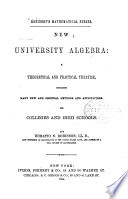 | Horatio Nelson Robinson - Algebra - 1864 - 444 pages
...have mr = an; therefore, log. (mr) = rx = r log. m. 6. — The logarithm of any root of a number ù equal to the logarithm of the number divided by the index of the root. For, let то = a1 ; then x = log. от. • By evolution we have \Ara = <f ', x log. m therefore,... | |
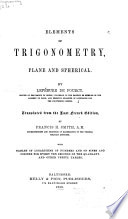 | Lefébure de Fourcy (M., Louis Etienne) - Trigonometry - 1868 - 350 pages
...a"» = <* УBut, ^ = log tj/"y7and x = log y. Hence «lo That is, the logarithm of the m"1 root of a number is equal to the logarithm of the number divided by the index of the root. LOQABITHlfS. 5 and then finding in the tables the number whoso logarithm is equal to the sum or difference,... | |
 | Edward Brooks - Geometry - 1868 - 284 pages
...have, 10"- = JM* Hence, log M n = mn, or, = log M X n. PRIN. 7. — The logarithm of the root of any number is equal to the logarithm of the number divided by the index of the root. For, since 10" = M, if we take the nth root of both members, we have, Hence, log .\/~M= — , or, log... | |
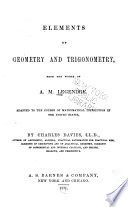 | Adrien Marie Legendre - Geometry - 1871 - 490 pages
...have, whence, by the definition, * = log ?Jm. - . . . ( 9.) That is, the logarithm of any root of a number is equal to the logarithm of the number divided by the index of the root. The preceding principles enable us to abbreviate the oper at1ons of multiplication and division, by... | |
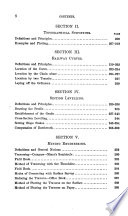 | Charles Davies - Leveling - 1871 - 448 pages
...1CT = ym; whence, by the definition, I = log j/^. ...... (9.) That is, the logarithm of any root of a number, is equal to the logarithm of the number divided by the index of the root. The preceding principles enable ns to abbreviate the operations of multiplication and division of numbers,... | |
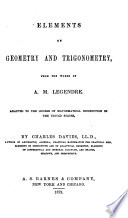 | Charles Davies - Geometry - 1872 - 464 pages
...have, • «d' = \/m ; whence, by the definition, ~ .... (9.) That is, the logarithm of any root of a number is equal to the logarithm of the number divided by the index of the root. TABLE OB LOGARITHMS. 9. A TABLE OF LOGARITHMS, is a table containing a set of numbers and their logarithms,... | |
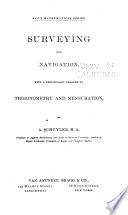 | Aaron Schuyler - Measurement - 1864 - 506 pages
...power of .9. Ans. .59047. EVOLUTION BY LOGARITHMS. 25. Proposition. The logarithm of any root of a number is equal to the logarithm of the number divided by the index of the root. Let (1) b- = n; then, by def., log n = x. lX(l) = (2) b'r —1/n; then, by def., log 1</~^, = — .... | |
 | Charles Elsee - 1873 - 320 pages
...above proof be considered fractional ( = - J, we have also ^ = 7 1ов.». ic the logarithm of a root is equal to the logarithm of the number, divided by the index of the root. 161.— PROP. Logawi = Log,,™ x Logai. For let logb m = y, and log„ Ь = z, then m = Ъ", Ь =... | |
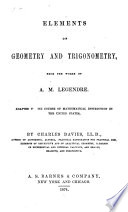 | Adrien Marie Legendre - Geometry - 1874 - 500 pages
...whence, by the definition, * = log 'Jm. ' • • • ( 9.) That is, the logarithm of any root of a number is equal to the logarithm of the number divided by the index of the root. The preceding principles enable us to abbreviate the oper ations of multiplication and division, by... | |
 | Mechanical engineering - 1874 - 1186 pages
...have log. y* (or log. */ y) = — log. y ; that is to say, the logarithm of any root of a number ia equal to the logarithm of the number divided by the index of the root. From these two last results it is obvious that by means of a table of logarithms numbers may be raised... | |
| |